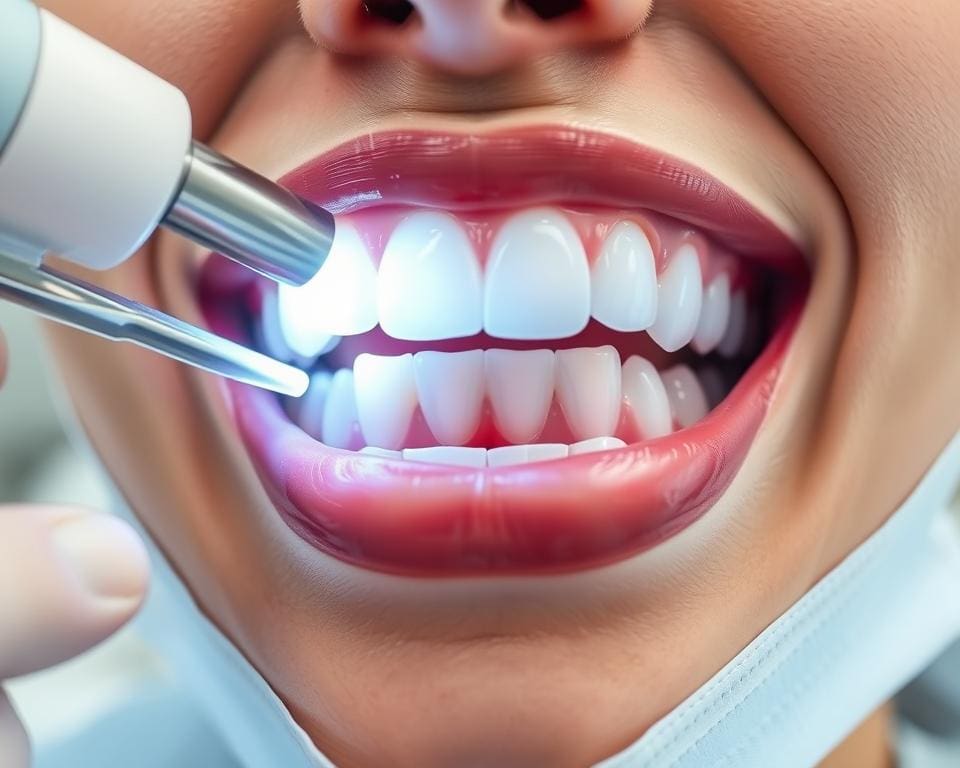After undergoing a teeth whitening procedure, one of the most pressing questions that often arises is, “What foods can you eat after teeth whitening?” Selecting the right aftercare foods plays a crucial role in preserving the brilliant results of your treatment. Whether you’ve opted for in-office whitening or at-home kits, understanding how various foods affect your enamel can make all the difference. The post-teeth whitening diet is not just about restrictions; it’s also an opportunity to nurture your smile with choices that enhance your brightness while promoting overall dental health. In this article, we will explore the essentials of maintaining that stunning smile through thoughtful eating practices.
Understanding the Teeth Whitening Process
The teeth whitening process involves several methods designed to restore the natural brightness of your smile. Professional in-office whitening treatments deliver instant results through potent agents like hydrogen peroxide. These agents break down discolouration, penetrating the tooth enamel for noticeable brightness.
For those seeking more gradual improvements, at-home kits provide a convenient alternative. These kits typically come with custom-fit trays and lower concentrations of whitening agents, allowing users to control the whitening experience on their own schedule. Over-the-counter products, such as whitening strips and toothpaste, offer additional options, albeit often with less immediate impact.
Understanding the potential tooth enamel effects is crucial for anyone considering whitening treatments. While many products are safe for short-term use, excessive treatments may lead to increased sensitivity or damage to enamel. Assessing one’s dental health and consulting with a dental professional can set realistic expectations and help avoid complications during the whitening journey.

The Importance of Aftercare Foods
After undergoing a teeth whitening procedure, the journey to maintain that sparkling smile continues with the selection of appropriate aftercare foods. The impact of diet on teeth can be profound, influencing not just the aesthetic results, but the overall health of your dental enamel. Some foods can complement post-whitening care, while others may hasten discolouration.
In the initial days following whitening, it is crucial to focus on aftercare foods that nurture the mouth and keep the new colour intact. Specific items, such as soft fruits, vegetables, and dairy products, provide essential nutrients while being less abrasive on the enamel. Avoiding foods high in acidity or pigmentation can help preserve the brightness that you have worked hard to achieve.
Scientific evidence suggests that a diet rich in calcium and vitamins can support dental health. Foods such as yogurt, leafy greens, and nuts not only promote recovery but also contribute to the overall strength of your teeth. Each meal becomes an opportunity to enhance your dental wellbeing, reinforcing the notion that intentional eating plays a critical role in maintaining a radiant smile.
What Foods Can You Eat After Teeth Whitening
After undergoing teeth whitening, making mindful choices about your diet is essential for maintaining that bright smile. Understanding what foods can support your dental health during this period can be advantageous. Choosing the right items not only promotes comfort but also aids in sustaining whiteness.
Soft Foods for Teeth Whitening
Immediately following the treatment, soft foods for teeth whitening become a go-to option. These types of food do not require much chewing, allowing your teeth to recover without additional strain. Ideal selections include:
- Yoghurt, which is smooth and packed with probiotics.
- Mashed potatoes, a comforting choice that offers versatility.
- Smooth soups that nourish while being gentle on sensitive teeth.
- Applesauce, providing the sweetness without the crunch.
Best Foods for Whitened Teeth
Once you transition to a regular diet, incorporating the best foods for whitened teeth can be exceptionally beneficial. These foods not only taste great but also contribute to keeping your teeth bright. Some recommendations include:
- Strawberries, which contain malic acid that can naturally whiten teeth.
- Crunchy fruits and vegetables such as apples and carrots, known for their ability to scrub teeth.
- Low-fat dairy products like cheese, which help neutralise acids in the mouth.
- Green leafy vegetables, rich in vitamins while promoting salivation.
Integrating these foods into your post-whitening diet can support both your comfort and the longevity of your results. Making informed choices can profoundly impact your overall oral health and satisfaction with your smile.
Foods to Avoid After Whitening
Following a teeth whitening treatment, making informed choices about what to eat is vital in preserving your newfound brightness. Certain discolouring foods can greatly hinder your results, leading to unwanted teeth staining. Here is a list of common items to avoid:
- Coffee – The deep pigments present in coffee can quickly tarnish your bright smile.
- Tea – Similar to coffee, especially black tea, it carries high chances of causing discolouration.
- Red wine – Its rich colour can easily contribute to staining, diminishing the effects of your whitening treatment.
- Berry fruits – Items like blueberries and blackberries can leave their mark, creating stubborn stains.
- Sauces – Dark sauces, including soy and tomato, may have adverse effects on your teeth’s luminosity.
Acidic foods, such as citrus fruits, can cause enamel sensitivity post-whitening. This sensitivity makes it necessary to consume these items with caution. For individuals aiming to maintain their stunning smiles, moderation is key. Consider enjoying lighter substitutes, like white tea or white wine, to avoid the risk of staining while still relishing your meals.
Creating a Tooth-Friendly Diet
Embracing a tooth-friendly diet plays a crucial role in maintaining a bright smile after teeth whitening. Healthy eating after teeth whitening can reinforce the effects of whitening treatments and promote overall dental health. Incorporating a variety of nutrient-dense foods into your meals provides the essential vitamins and minerals required for strong enamel and gums.
Healthy Eating After Teeth Whitening
To support ongoing whitening and enhance nutrition for dental health, consider including the following foods in your daily meals:
- Leafy greens, such as spinach and kale, are packed with vitamins and help cleanse the teeth.
- Whole grains offer sustained energy and contain fibre that stimulates saliva production, aiding in the natural cleaning of teeth.
- Lean proteins like chicken and fish promote healthy tissue regeneration and repair.
- Fruits, particularly high-water varieties like watermelon and oranges, provide hydration and help wash away food particles.
- Dairy products contribute calcium, which strengthens tooth enamel.
Staying hydrated is equally vital for oral health. Water not only helps rinse away bacteria and food residue but also supports saliva production, further aiding in keeping your teeth white and healthy. By focusing on a tooth-friendly diet, you can actively contribute to your dental wellbeing and enjoy the lasting effects of your teeth whitening journey.
Tips for Maintaining Your Bright Smile
To enjoy the benefits of long-lasting teeth whitening, it is crucial to adopt effective oral hygiene practices. Regular brushing with a quality whitening toothpaste can help preserve the brilliance of your newly whitened teeth. Pairing this with daily flossing will remove food particles and plaque, preventing stains from settling in and keeping your smile radiant.
Additionally, scheduling routine dental check-ups is a vital part of your oral care regimen. Not only do these visits allow your dentist to monitor your gum health, but they also provide opportunities for professional cleanings that enhance your bright smile. Incorporating these practices will set a solid foundation for a lifetime of dental health.
Moreover, it’s essential to be mindful of the foods you consume. Limiting stain-causing beverages, such as coffee and red wine, can significantly impact the longevity of your whitening results. By blending these tips for maintaining bright smile with consistent care and awareness, you’ll be well-equipped to showcase your sparkling smile for years to come.









